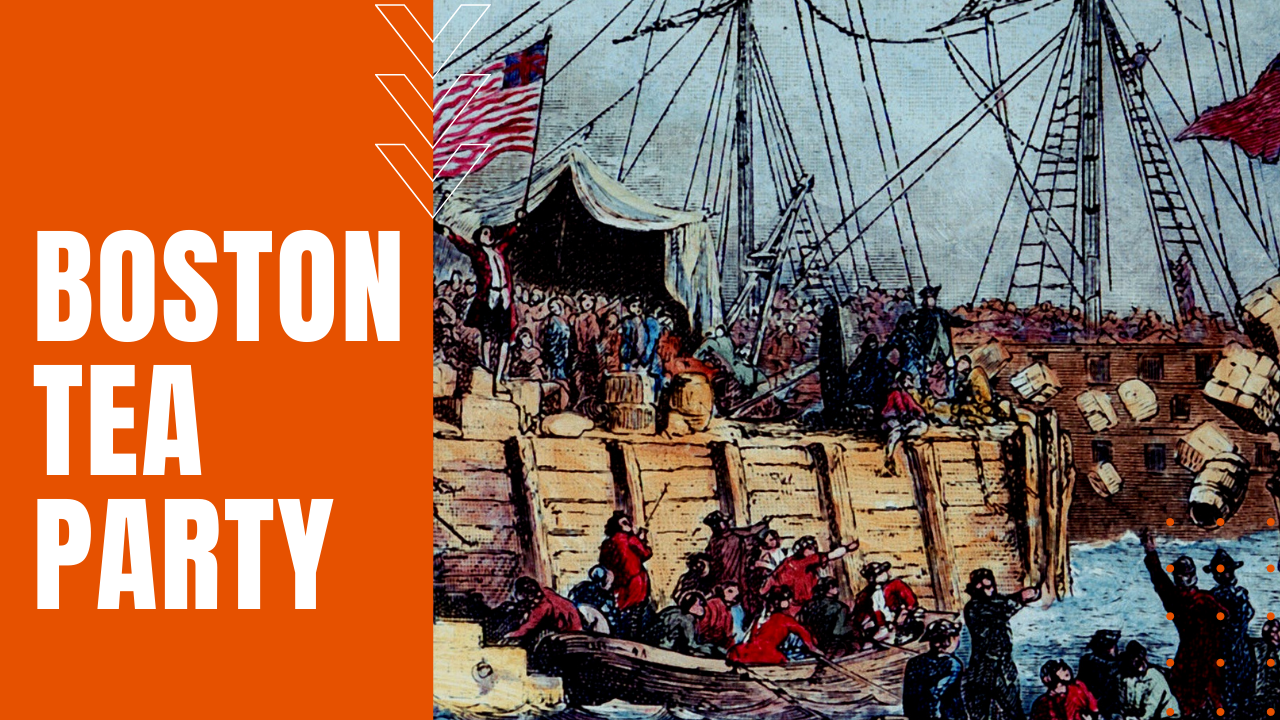Boston Tea Party

After years of rising tensions between colonialists and their British overlords—nearly all of it focused on taxation of inbound goods to the colonies without representation in British Parliament—the issue finally came to a head when Britain refused to cancel their tea tax in the same sweeping manner as they had done for taxes imposed by the Stamp Act of 1765 and the Townshend Acts of 1767.
Bostonians Boycott British East India Company Tea
In response, colonists boycotted tea sold by the British East India Company, which caught the enterprise financially flat-footed with millions of pounds of unsold tea.
In May of 1773, British Parliament further incited the colonialists by passing the Tea Act, which allowed the British East India Company to sell tea to the colonies duty-free, while at the same time taxing the tea when it landed in colonial ports.
Led by prominent merchants and smugglers John Hancock and Samuel Adams, tea smuggling into the colonies skyrocketed. Founded by colonial merchants and tradesmen who originally opposed the Stamp Act.
When was the Boston Tea Party?
On December 16th, 1773, the Sons of Liberty gathered at Griffin’s Wharf in Boston to protest the arrival of the Dartmouth, which along with her sister ships Beaver and Eleanor, had all sailed from China with full cargos of tea.
A subsequent vote was held at the Old South Meeting House where a large group of colonists voted to refuse to pay taxes on the tea or allow the tea to be unloaded, stored, sold or used anywhere in the colonies. When British Governor Thomas Hutchison refused to allow the ships to return to Britain without first paying the tea tariff, the gathered colonialists vehemently refused the Governor’s edicts, and once nightfall was upon Boston Harbor, upwards of 100 men—many reportedly members of the Sons of Liberty—disguised themselves as Native Americans before boarding the ships and tossing some 342 chests of tea into the water.
Weighing in at some 45 tons of Chinese tea, the work would take three hours to fully empty out the cargo holds. While some important colonist leaders such as John Adams were thrilled to learn Boston Harbor was covered in tea leaves, others were not supportive.
Reactions to Boston’s Tea Party
In June of 1774, George Washington wrote: “the cause of Boston…ever will be considered as the cause of America,” yet his personal views of the event were far different from his public stance. He voiced strong disapproval of “their conduct in destroying the Tea” and claimed Bostonians “were mad.”
Ben Franklin insisted that the British East India Company should be reimbursed for the lost tea, and even offered to pay for it himself. No one was hurt during the three-hour Boston Tea Party, and aside from the destruction of 90,000 pounds of tea and a solitary padlock, the ships themselves were left unharmed.
In fact, as the flash mob of patriots finished offloading the tea that night, they swept the decks of all three ships before retiring from to their homes.
